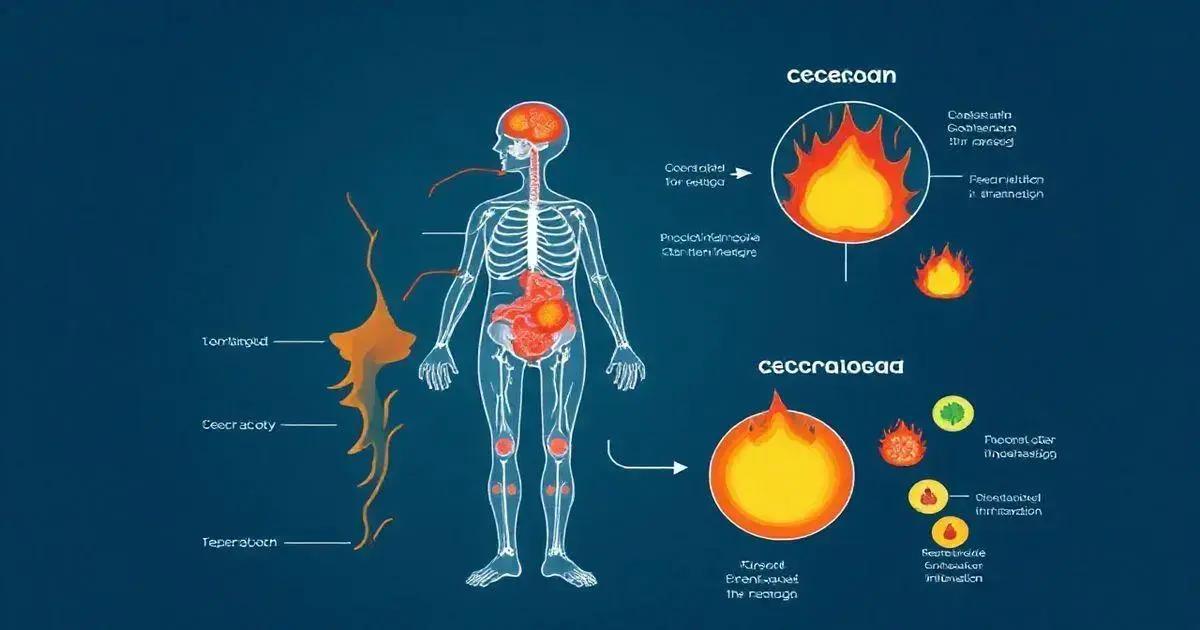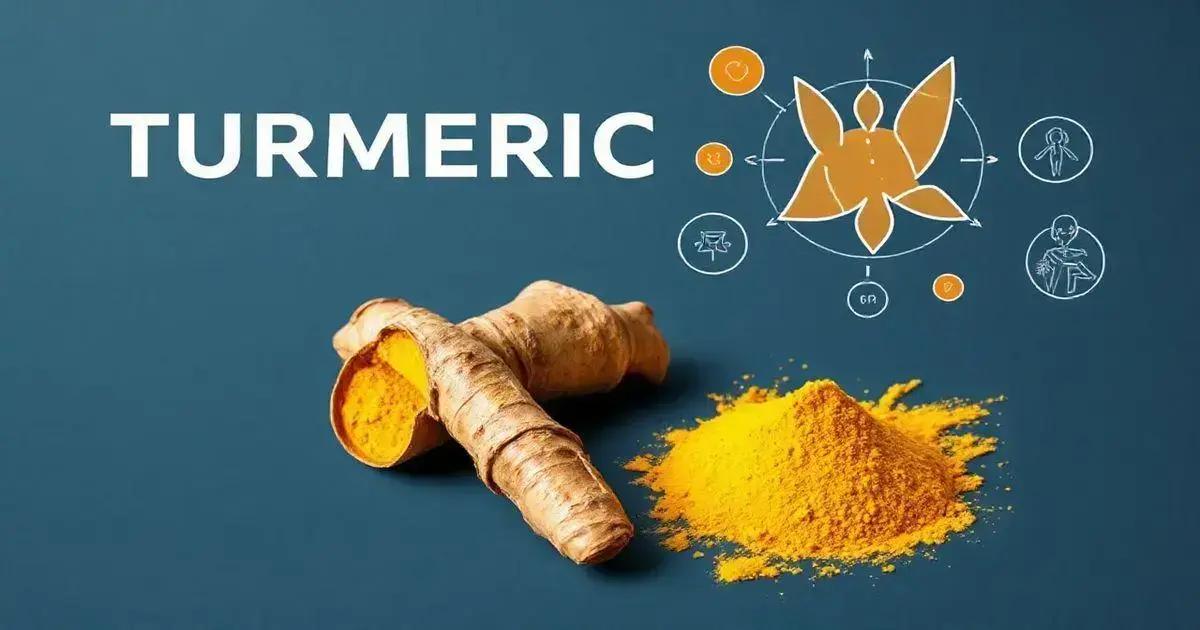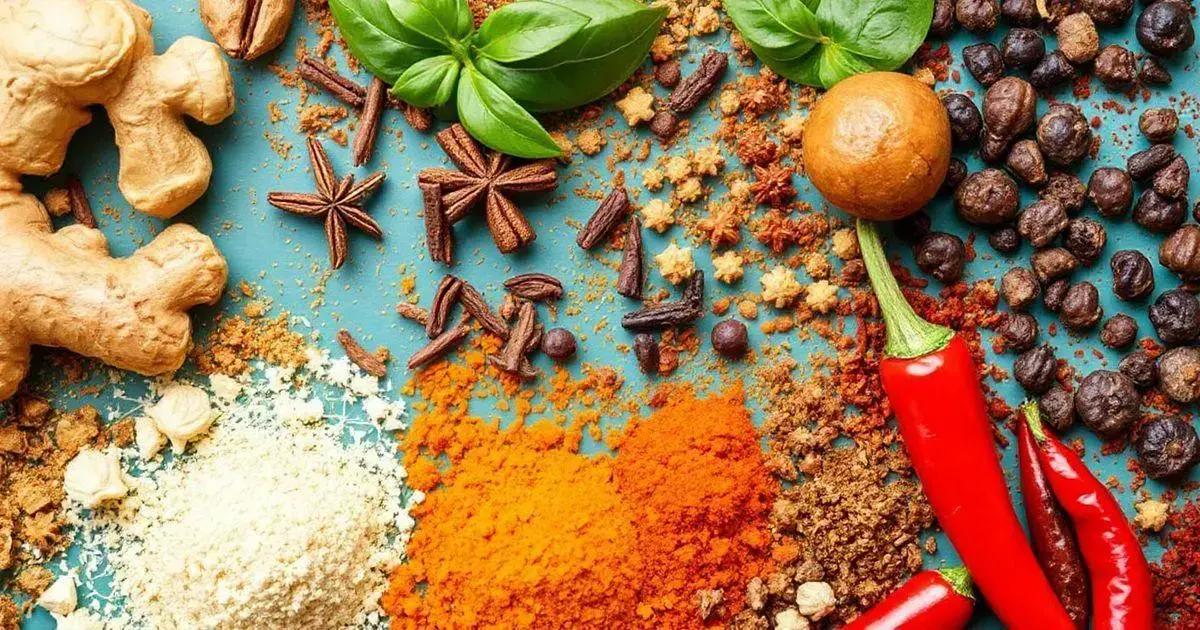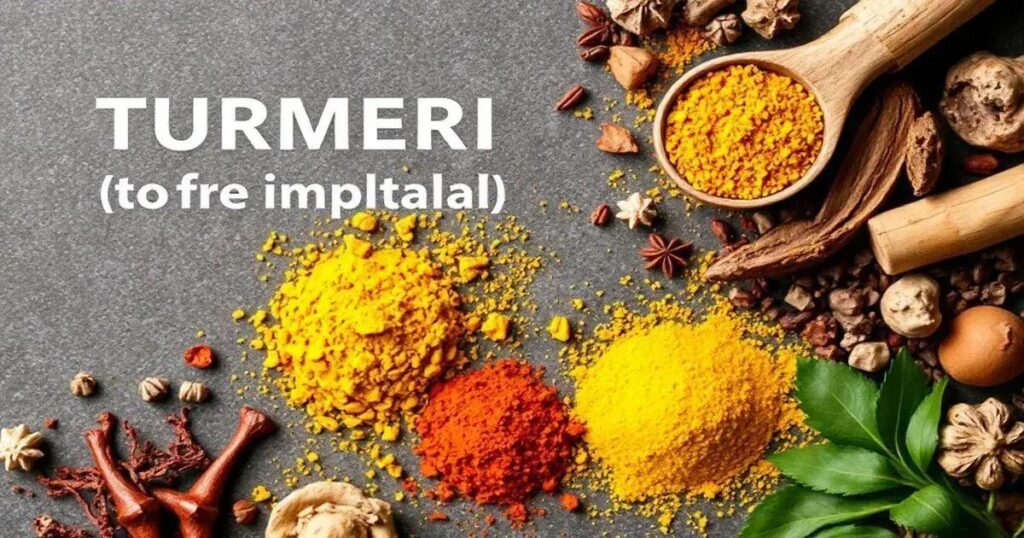The benefits of spices like turmeric for inflammation are significant, as these spices contain powerful anti-inflammatory properties. Incorporating turmeric, ginger, cinnamon, and others into your diet can help manage inflammation effectively, reduce pain, and improve overall health. Simple ways to include these spices include adding them to meals, baking, or making herbal teas, while pairing them with black pepper can enhance their benefits.
Spices like turmeric hold incredible potential for reducing inflammation in the body. Inflammation can be a cause of various health issues, and recognizing how certain spices can help is essential. This article highlights the benefits of spices like turmeric for inflammation, emphasizing their roles in natural healing. We’ll not only explore turmeric, but also discuss other spices that play a valuable role in combating inflammation and how to incorporate them into your daily meals.
Understanding Inflammation and Its Impacts

Inflammation is the body’s natural response to injury or infection. It serves as a protective mechanism, helping to heal injured tissues and fight off pathogens. However, when inflammation becomes chronic, it can lead to a variety of health issues. Understanding inflammation and its impacts is critical to embracing natural remedies, like spices, to manage it effectively.
Types of Inflammation
There are two main types of inflammation: acute and chronic. Acute inflammation occurs suddenly and is usually a short-term response to harm, such as an injury. It can result in redness, heat, swelling, and pain. In contrast, chronic inflammation lasts for longer periods, sometimes even years. Conditions like arthritis, heart disease, and diabetes have been linked to chronic inflammation.
Causes of Chronic Inflammation
Chronic inflammation can be triggered by various factors, including poor diet, obesity, stress, smoking, and exposure to environmental toxins. Developing an understanding of these causes can help individuals make lifestyle changes to reduce their inflammatory responses.
Effects of Inflammation on the Body
While inflammation is essential for healing, chronic inflammation is detrimental. It can lead to tissue damage and the progression of diseases. Inflammation can disrupt normal bodily functions, causing fatigue, pain, and even contributing to mental health issues like depression or anxiety. Recognizing the signs of chronic inflammation is crucial for taking proactive steps towards better health.
The Role of Turmeric in Combatting Inflammation

Turmeric is a vibrant yellow spice that has been used for centuries in traditional medicine. Its active compound, curcumin, is known for its powerful anti-inflammatory properties. Research shows that curcumin can effectively reduce inflammation in the body, making turmeric a popular choice for combatting chronic inflammatory conditions.
How Turmeric Works
Curcumin works by inhibiting several molecules that play significant roles in inflammation. It blocks the activity of enzymes and cytokines that are involved in the inflammatory process. By doing so, turmeric helps to lower the levels of inflammation and provides relief from related symptoms.
Health Benefits of Turmeric
Studies suggest that turmeric can benefit individuals suffering from inflammatory conditions like arthritis, inflammatory bowel disease, and even some heart issues. Regular consumption of turmeric can help decrease pain and improve joint function, enhancing overall well-being.
How to Use Turmeric
Incorporating turmeric into your diet is simple. You can add it to dishes like soups, curries, or smoothies. Additionally, turmeric teas and supplements are available for those who want a concentrated dose. Pairing turmeric with black pepper can enhance curcumin absorption, maximizing its benefits.
Other Beneficial Spices for Inflammation

In addition to turmeric, there are several other spices that offer remarkable benefits for reducing inflammation. Incorporating these spices into your diet can help you manage inflammation effectively.
Ginger
Ginger is well-known for its medicinal properties. It contains gingerol, which has powerful anti-inflammatory effects. Consuming ginger can help relieve muscle pain, reduce arthritis symptoms, and soothe an upset stomach.
Cinnamon
Cinnamon is not just a delicious spice; it also has anti-inflammatory properties. Studies have indicated that cinnamon can lower levels of inflammatory markers in the body. Adding cinnamon to your meals may help protect against heart disease and improve blood sugar control.
Cloves
Cloves contain eugenol, a compound that can significantly reduce inflammation. Cloves may help with inflammation-related conditions and support pain relief. You can use them in cooking, baking, or even as a tea.
Black Pepper
While often considered a common seasoning, black pepper contains piperine, which enhances the absorption of curcumin from turmeric. By combining turmeric and black pepper, you can maximize the anti-inflammatory benefits of both spices.
Chili Peppers
Chili peppers contain capsaicin, known for its pain-relieving properties. Capsaicin can help reduce inflammation and may be beneficial for those with arthritis or other chronic pain conditions.
Incorporating Spices into Your Diet

Incorporating spices into your diet is a simple and delicious way to enhance your meals while reaping the health benefits associated with them. Here are some easy methods to add spices like turmeric, ginger, and others into your daily eating habits.
Start with Breakfast
Add spices to your breakfast dishes. You can sprinkle cinnamon on your oatmeal or mix turmeric into your morning smoothie. Ginger can also be used in pancake or waffle batter for a flavorful kick.
Spice Up Your Meals
When cooking lunch or dinner, experiment with different spices. Make curry dishes using turmeric and ginger, or stir-fry vegetables with garlic and black pepper. Don’t be afraid to mix and match spices to create new flavors.
Baking with Spices
Incorporate spices into your baking. Add cinnamon or nutmeg to cookies and muffins. You can also use ground ginger or cloves to create unique flavors in baked goods. This way, you enjoy delicious treats while benefiting from the spices.
Herbal Tea Infusions
Making herbal teas is another way to consume spices. Brew ginger, turmeric, or chamomile with honey for a soothing drink. Adding black pepper to your tea can enhance the absorption of turmeric.
Try Spice Blends
Using spice blends can simplify adding multiple spices to your meals. Look for blends that include turmeric, pepper, and ginger. Sprinkle them on meats, vegetables, or grains to create flavorful dishes quickly.
Incorporating Spices into Your Lifestyle
Spices like turmeric, ginger, cinnamon, and others play a significant role in managing inflammation and promoting overall health. By adding these spices to your daily meals, you can enjoy both their delicious flavors and their therapeutic benefits.
As you experiment with different ways to incorporate spices into your diet, consider how they can enhance your favorite recipes, whether in breakfast smoothies, hearty curries, or baked goods. Each spice brings unique properties that can help combat inflammation and improve your well-being.
Incorporating these spices into your lifestyle requires no drastic changes; simply enhancing everyday meals can lead to noticeable health benefits. Embrace the rich flavors and versatility of spices, and enjoy the vibrant health they can help provide.
With a commitment to including these potent ingredients in your diet, you can take meaningful steps to support your body’s fight against inflammation.
FAQ – Frequently Asked Questions about Spices for Inflammation
What are the best spices for reducing inflammation?
Turmeric, ginger, cinnamon, black pepper, and cloves are among the best spices known for their anti-inflammatory properties.
How can I incorporate turmeric into my meals?
You can add turmeric to smoothies, soups, curries, and even baked goods for a flavorful and health-boosting ingredient.
Are there any side effects of consuming too much turmeric?
In moderation, turmeric is safe for most people. However, excessive consumption may lead to digestive issues or interfere with certain medications.
Can I use turmeric supplements instead of the spice?
Yes, turmeric supplements can provide concentrated doses of curcumin, but it’s essential to consult a healthcare professional before starting any new supplement.
How do I maximize the benefits of turmeric?
Combining turmeric with black pepper can enhance curcumin absorption, significantly increasing its effectiveness in the body.
Are there other dietary changes that can help with inflammation?
Yes, in addition to spices, a diet rich in fruits, vegetables, whole grains, and healthy fats can help reduce inflammation.













